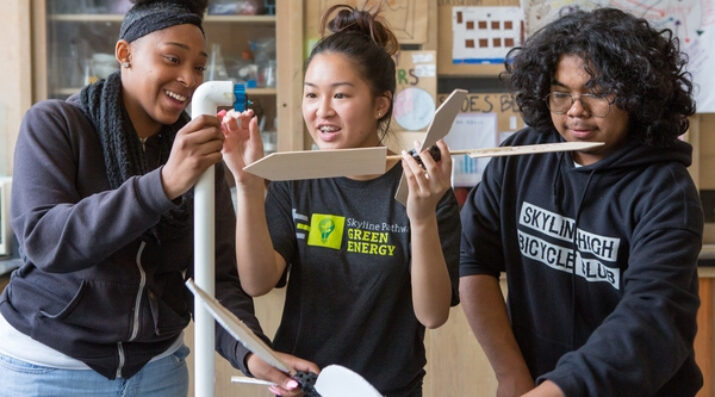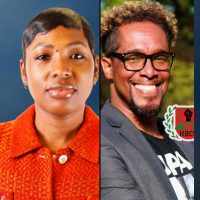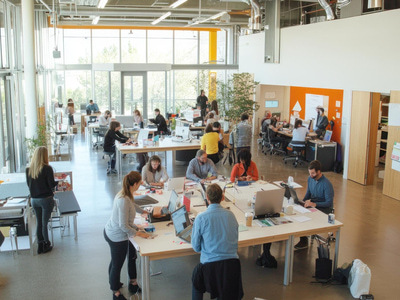New Designs for School
The Power of Project-Based Learning in STEM and History
Topics

We’ve all had the experience of truly purposeful, authentic learning and know how valuable it is. Educators are taking the best of what we know about learning, student support, effective instruction, and interpersonal skill-building to completely reimagine schools so that students experience that kind of purposeful learning all day, every day.
Project-based learning has the power to connect students to course content, from history to computer science.
As educators, we’ve seen firsthand how project-based learning (PBL) transforms the classroom into a space of inquiry, engagement, and discovery. I’m Yaritza Villalba, a history educator, and I’m Victor Hicks, a STEM educator. We’re excited to share how PBL has shaped our teaching and empowered our students.
For me (Yaritza), PBL was a game-changer when working with overage and undercredited students. Many of my students had struggled with reading comprehension and had given up on history. Instead of focusing on rote memorization, I turned my classroom into an investigative space where students acted as historians, analyzing primary and secondary sources to uncover the past. The result? Students who had once felt defeated saw themselves as scholars, actively questioning and piecing together history in ways that felt meaningful to them.
By using PBL, we are preparing students not just for exams but for the world beyond the classroom.
I remember one particular project where students had to reimagine historical events by stepping into the shoes of historical figures. Instead of merely reading about the Civil Rights Movement, my students became civil rights activists. They had to research the key figures, the political climate, and the impact of different strategies. Then, they created speeches and interactive presentations to “convince” the class of their strategies. This made history real for them. Instead of memorizing names and dates, they were actively engaging in critical thinking, argumentation, and analysis.
For me (Victor), PBL was the bridge that connected my students to computer science. When I first started teaching coding, I realized many students didn’t see its real-world applications. That’s when I introduced projects like designing apps and creating Historically Black Colleges and Universities (HBCUs) in Minecraft. PBL gave students ownership of their learning—whether they were coding, designing, or organizing—and allowed them to collaborate in a way that built their confidence and skills.
One of my favorite moments was when a group of students, many of whom had never considered themselves “tech-savvy,” built a fully interactive HBCU campus in Minecraft. They designed buildings, coded interactive elements, and even included historical information to educate visitors. Seeing their excitement and sense of accomplishment made me realize just how powerful PBL can be in fostering creativity and confidence in all students, not just those traditionally excelling in STEM subjects.
The beauty of PBL is that it mirrors real-world learning. It allows students to take control, build critical skills, and see how education applies to their lives. By using PBL, we are preparing students not just for exams but for the world beyond the classroom.
Photo at top by Allison Shelley/The Verbatim Agency for EDUimages, CC BY-NC 4.0




